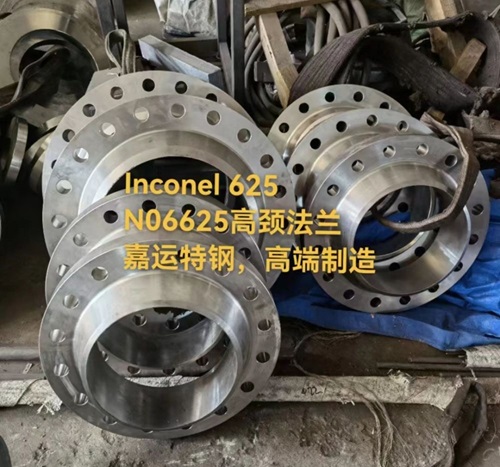High temperature alloy is a type of metal alloy that can maintain its strength, stability, and resistance to oxidation and corrosion at elevated temperatures. High temperature alloy is widely used in various industries, such as aerospace, power generation, petrochemical, nuclear, and marine. High temperature alloy can withstand the harsh conditions of high pressure, high temperature, high stress, and high speed, and provide reliable and long-lasting performance.
However, not all high temperature alloys are the same, and some may have drawbacks, such as low ductility, poor weldability, and high cost. To overcome these problems, Hangnie Super Alloys Co., Ltd., a professional manufacturer of machinery manufacturing fields and special alloy products in harsh and harsh working environments, has developed a series of high temperature alloys that can meet the different requirements and specifications of various applications. The high temperature alloys are made of high-quality materials and have a sophisticated and customized design that sets them apart from other alloys on the market.
Product Properties and Performance
The high temperature alloys have the following properties and performance features:
• High strength: The high temperature alloys have high tensile strength, yield strength, and creep strength, which can resist deformation and fracture under high load and stress. The high temperature alloys can also maintain their strength at high temperatures, up to 1200°C or above, depending on the alloy composition and heat treatment.
• High stability: The high temperature alloys have high thermal stability, which means they can retain their shape and size at high temperatures, and avoid thermal expansion and contraction. The high temperature alloys also have high dimensional stability, which means they can resist distortion and warping under high stress and strain.
• High resistance: The high temperature alloys have high resistance to oxidation and corrosion, which means they can prevent the deterioration and degradation of the alloy surface and structure by the reaction with oxygen, water, acid, alkali, salt, and other chemicals. The high temperature alloys also have high resistance to fatigue, wear, and erosion, which means they can prevent the damage and loss of the alloy material by the repeated or continuous impact, friction, and abrasion.
• High diversity: The high temperature alloys have a wide range of alloy compositions, forms, and grades, which can be customized according to the different needs and preferences of the customers. The high temperature alloys can be made of various elements, such as nickel, iron, cobalt, chromium, molybdenum, tungsten, titanium, aluminum, etc., and can be combined in different proportions and ratios to achieve the desired properties and performance. The high temperature alloys can also be produced in various forms, such as bars, rods, wires, plates, sheets, strips, tubes, pipes, forgings, castings, etc., and can be processed by various methods, such as hot rolling, cold rolling, drawing, extruding, forging, casting, etc., to obtain the required shape and size. The high temperature alloys can also be classified into different grades, such as Inconel, Incoloy, Hastelloy, Nimonic, Monel, Rene, Waspaloy, etc., and can be distinguished by their specific alloy numbers, such as 600, 625, 718, 800, C276, X750, etc., to indicate their different characteristics and applications.
Conclusion
The high temperature alloys are superior materials for extreme environments, as they can provide high strength, high stability, high resistance, and high diversity for various applications. The high temperature alloys are high-quality and high-performance products that can meet your needs and expectations.
If you are interested in buying the high temperature alloys, or want to know more about them, please contact us through the information below. We will be happy to assist you and answer any questions you may have.
Email: andrew@hnsuperalloys.com
WhatsApp: +86 13661794406
Post time: Feb-06-2024





